Related Research Articles
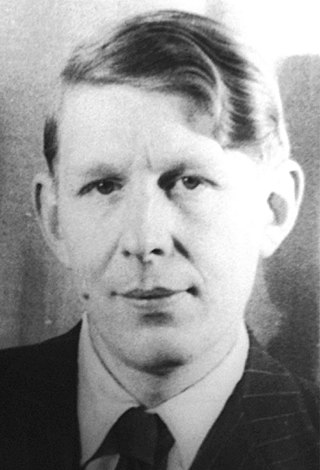
Wystan Hugh Auden was a British-American poet. Auden's poetry is noted for its stylistic and technical achievement, its engagement with politics, morals, love, and religion, and its variety in tone, form, and content. Some of his best known poems are about love, such as "Funeral Blues"; on political and social themes, such as "September 1, 1939" and "The Shield of Achilles"; on cultural and psychological themes, such as The Age of Anxiety; and on religious themes, such as "For the Time Being" and "Horae Canonicae".
Calypso is a style of Caribbean music that originated in Trinidad and Tobago during the early to mid-19th century and spread to the rest of the Caribbean Antilles by the mid-20th century. Its rhythms can be traced back to West African Kaiso and the arrival of French planters and their slaves from the French Antilles in the 18th century.
Chester Simon Kallman was an American poet, librettist, and translator, best known for collaborating with W. H. Auden on opera librettos for Igor Stravinsky and other composers.

Frederick Louis MacNeice was an Irish poet, playwright and producer for the BBC. His poetry, which frequently explores themes of introspection, empiricism, and belonging, is considered to be among the greatest of twentieth century literature. Despite being renowned as a member of the Auden Group, he was also an independently successful poet with an influential body of work, which is replete with themes ranging from faith to mortality. His body of work was appreciated by the public during his lifetime, due in part to his relaxed but socially and emotionally aware style. Never as overtly or simplistically political as some of his contemporaries, he expressed a humane opposition to totalitarianism as well as an acute awareness of his roots.
Antoinette Millicent Hedley Anderson was an English singer and actor.

"September 1, 1939" is a poem by W. H. Auden written shortly after the German invasion of Poland, which would mark the start of World War II. It was first published in The New Republic issue of 18 October 1939, and in book form in Auden's collection Another Time (1940).
"Funeral Blues", or "Stop all the clocks", is a poem by W. H. Auden which first appeared in the 1936 play The Ascent of F6. Auden substantially rewrote the poem several years later as a cabaret song for the singer Hedli Anderson. Both versions were set to music by the composer Benjamin Britten. The second version was first published in 1938 and was titled "Funeral Blues" in Auden's 1940 Another Time. The poem experienced renewed popularity after being read in the film Four Weddings and a Funeral (1994), which also led to increased attention on Auden's other work. It has since been cited as one of the most popular modern poems in the United Kingdom.

"Pangur Bán" is an Old Irish poem written in about the 9th century at or near Reichenau Abbey, in what is now Germany, by an Irish monk about his cat. Pangur Bán, 'White Pangur', is the cat's name, Pangur possibly meaning 'a fuller'. Although the poem is anonymous, it bears similarities to the poetry of Sedulius Scottus, prompting speculation that he is the author. In eight verses of four lines each, the author compares the cat's happy hunting with his own scholarly pursuits.
Hermit Songs is a cycle of ten songs for voice and piano by Samuel Barber. Written in 1953 on a grant from the Elizabeth Sprague Coolidge Foundation, it takes as its basis a collection of anonymous poems written by Irish monks and scholars from the 8th to the 13th centuries, in translations by W. H. Auden, Chester Kallman, Howard Mumford Jones, Kenneth H. Jackson and Seán Ó Faoláin. The Hermit Songs received their premiere in 1953 at the Library of Congress, with soprano Leontyne Price and Barber himself as pianist.
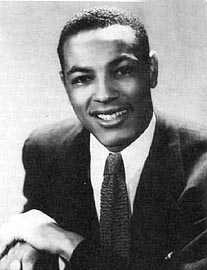
William Alexander Attaway was an African-American novelist, short story writer, essayist, songwriter, playwright, and screenwriter.
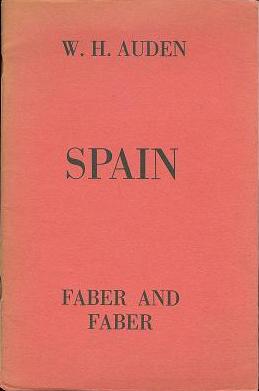
Spain is a poem by W. H. Auden written after his visit to the Spanish Civil War. Spain was described by George Orwell as "one of the few decent things that have been written about the Spanish war". It was written and published in 1937. Auden donated all the profits from the sale of Spain to the Spanish Medical Aid Committee.
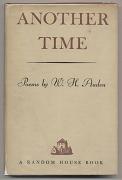
Another Time is a book of poems by W. H. Auden, published in 1940.
"The Sea and the Mirror: A Commentary on Shakespeare's The Tempest" is a long poem by W. H. Auden, written 1942–44, and first published in 1944. Auden regarded the work as "my Ars Poetica, in the same way I believe The Tempest to have been Shakespeare's."

For the Time Being: A Christmas Oratorio, is a long poem by W. H. Auden, written in 1941 and 1942, and first published in 1944. It was one of two long poems included in Auden's book also titled For the Time Being, published in 1944; the other poem included in the book was "The Sea and the Mirror."
"Choucoune" is a 19th-century Haitian song composed by Michel Mauléart Monton with lyrics from a poem by Oswald Durand. It was rewritten with English lyrics in the 20th century as "Yellow Bird". Exotica musician Arthur Lyman made the song a hit in 1961.
John Fuller FRSL is an English poet and author, and Fellow Emeritus at Magdalen College, Oxford.
This is a bibliography of books, plays, films, and libretti written, edited, or translated by the Anglo-American poet W. H. Auden (1907–1973). See the main entry for a list of biographical and critical studies and external links. Dates are dates of publication of performance, not of composition.
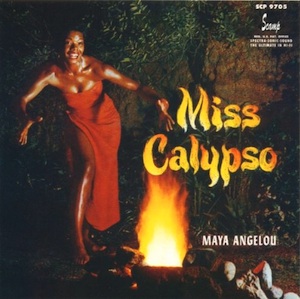
Miss Calypso is the debut and only studio album by American writer and poet Maya Angelou, released in 1957. The album was released during a craze for calypso music catalyzed by Harry Belafonte the previous year. Angelou sings every song on the album, and she composed five of them. Behind Angelou's voice, studio guitarist Tommy Tedesco and percussionist Al Bello created an exotic mood. Angelou toured in support of the album, performing calypso songs in nightclubs. The album was a modest success but Angelou did not make any further records as a singer.

Maya Angelou, an African-American writer who is best known for her seven autobiographies, was also a prolific and successful poet. She has been called "the black woman's poet laureate", and her poems have been called the anthems of African Americans. Angelou studied and began writing poetry at a young age, and used poetry and other great literature to cope with trauma, as she described in her first and most well-known autobiography, I Know Why the Caged Bird Sings. She became a poet after a series of occupations as a young adult, including as a cast member of a European tour of Porgy and Bess, and a performer of calypso music in nightclubs in the 1950s. Many of the songs she wrote during that period later found their way to her later poetry collections. She eventually gave up performing for a writing career.
References
- ↑ Held, James (Winter 1992). "Ironic Harmony: Blues Convention and Auden's "Refugee Blues"". Journal of Modern Literature. 18 (1). Indiana University Press: 139–142. JSTOR 3831552.
- ↑ As of 2022 distributed by University Of York Music Press. The other song is As I walked out one evening.